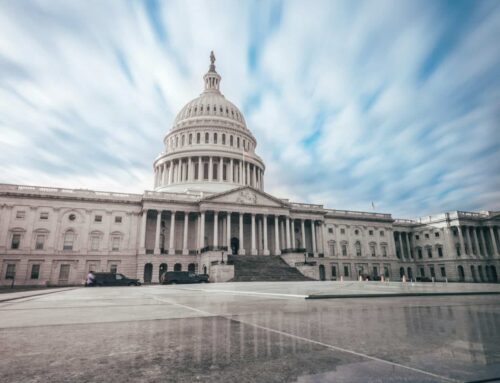It’s déjà vu all over again. While a small subset of Congress meets to find a solution to the border security impasse, there is a real possibility we’re two weeks away from an encore. But instead of working 24-7 to find solutions to avoid another shutdown, many in Congress are pushing legislation to treat the symptom (disruptions caused by funding lapses) while ignoring the disease: unwillingness to do the job.
We hope that everyone recognizes that no one wins from shutdowns. The holdouts don’t get their way, taxpayers lose, and federal workers and contractors get hosed. The most recent 35-day shutdown ended like every one of its predecessors – with nothing to show for it.
Shutdowns – Lose/Lose, Little Gain
Actually less than nothing. The Congressional Budget Office estimated a Gross Domestic Product (GDP) loss of roughly $11 billion. Around $8 billion will be recovered, but $3 billion is gone for good. In the context of more than a $20 trillion economy, it isn’t a huge percentage, but it is the same amount as about a third of the Department of Commerce’s budget or more than three times the Small Business Administration’s budget. And of course for the workers who lost wages and businesses who lost business, the fact that it is a small hit in macroeconomic terms is of little comfort.
There are plenty of other costs that don’t show up on the budget balance sheet. The GDP hit doesn’t include the pay that is going to workers who, through no fault of their own, didn’t work during the shutdown. There are re-start-up costs to bring agencies back online with missed deadlines, and experiments that have to be revived after permanent interruptions to data. Staff at one NASA facility came back to flooded labs and work spaces from a leak. There’s also the opportunity cost of projects, conferences, kick-offs etc. that lapsed and may never come back as a result of funding lapses. And then there’s the sheer backlog of work awaiting government agencies after a five-week work stoppage.
It was a lot of pain with no gain.
It pays to remember this was a partial government shutdown. Five of the twelve spending bills that fund government were enacted before the October 1 start to fiscal year 2019. So the Departments of Defense, Education, Energy, Health and Human Services, Labor, and Veterans Affairs were spared. But Commerce, Interior Homeland Security, Housing and Urban Development, Justice, and Treasury to name a few are operating under a 21 day reprieve that expires February 15 – two weeks away.
With this pain fresh on their mind some lawmakers are using this latest shutdown as an opportunity to pitch legislation that would automatically keep government open, with some pain applied. One bill would fund all of government at previous year’s levels except the legislative branch and the executive office of the president – the entities that have negotiated an end to a shutdown. Another would keep government open but at one percent across the board cut for the first 90 days, then another one percent cut for another 90 days and so on. Yet another would keep government open for 120 days before starting the one percent across the board cuts every 90 days.
We sum up these shutdown prevention bills in one word: pathetic.
Congress, Do Your Job
Policymakers already have the tools to prevent shutdowns. Vote. Pass spending bills or continuing resolutions and have the president sign or veto them. Then do it again or overturn the veto. It’s called legislating, give and take. This latest shutdown was about a roughly $4 billion difference over a “wall.” We put wall in quotes, because there have been virtually no specifics as to what would be built, where, or when. We’re all for border security, but there has yet to be a plan put into place spelling out how to achieve it.
Both sides can negotiate over border security tactics while the government is open. In fact, that’s what’s happening now. And that’s what they should do. Border walls, health insurance subsidies, water projects, tax cuts, post office namings, whatever. Debating the merits of investing taxpayer dollars on this and that or that and this is the very point of having a Congress.
One thing that is likely to come from these shutdown prevention bills is longer periods of government operating under Continuing Resolutions which are also wasteful. Lawmakers are like college students with a term paper. Delay the deadline 120 days, and they will pull an all-nighter the 119th day to get it done.
Shutdowns are wasteful and do need to be eliminated. But lawmakers don’t need legislation to protect them from themselves. They simply need to legislate.










